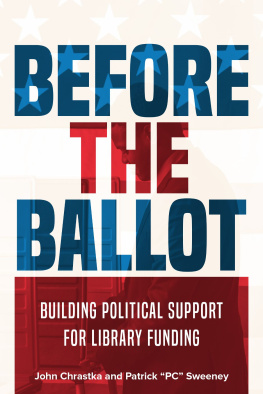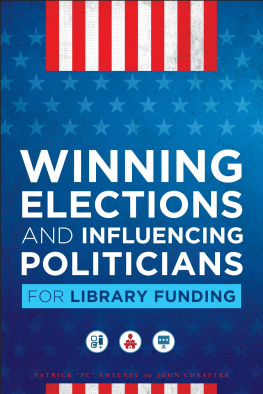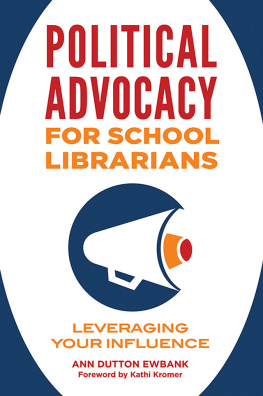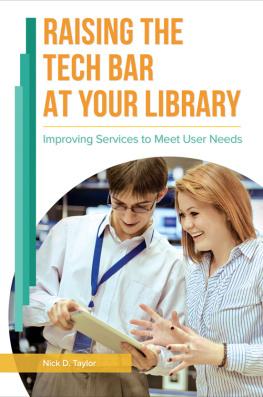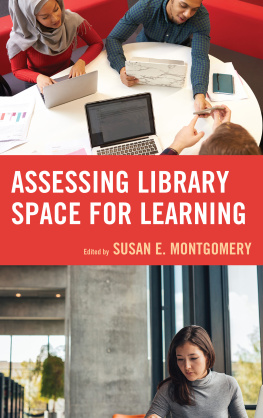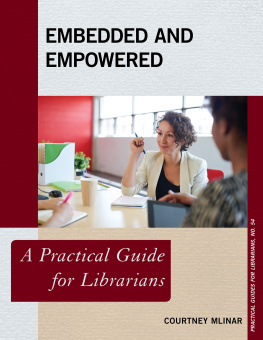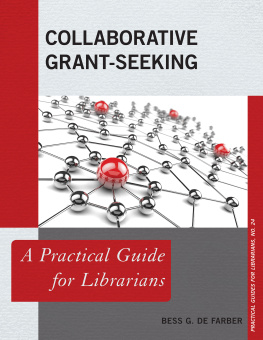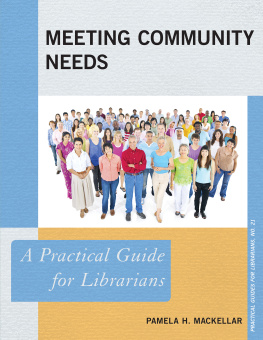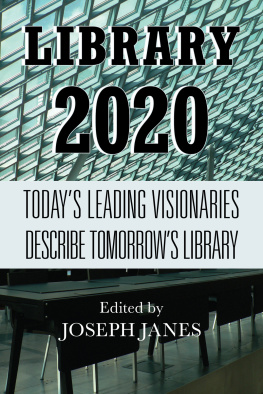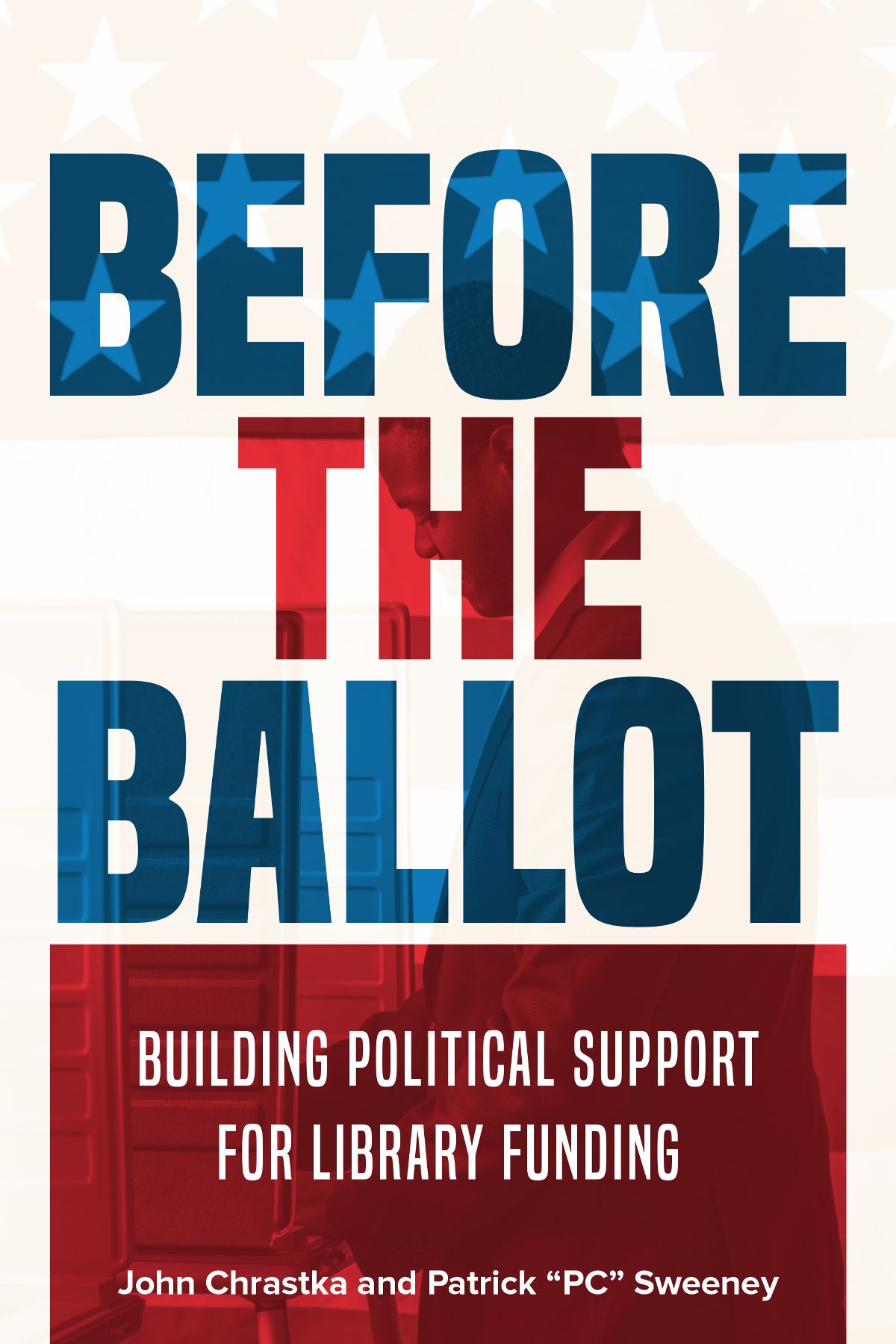
ALA Neal-Schuman purchases fund advocacy, awareness, and accreditation programs for library professionals worldwide.
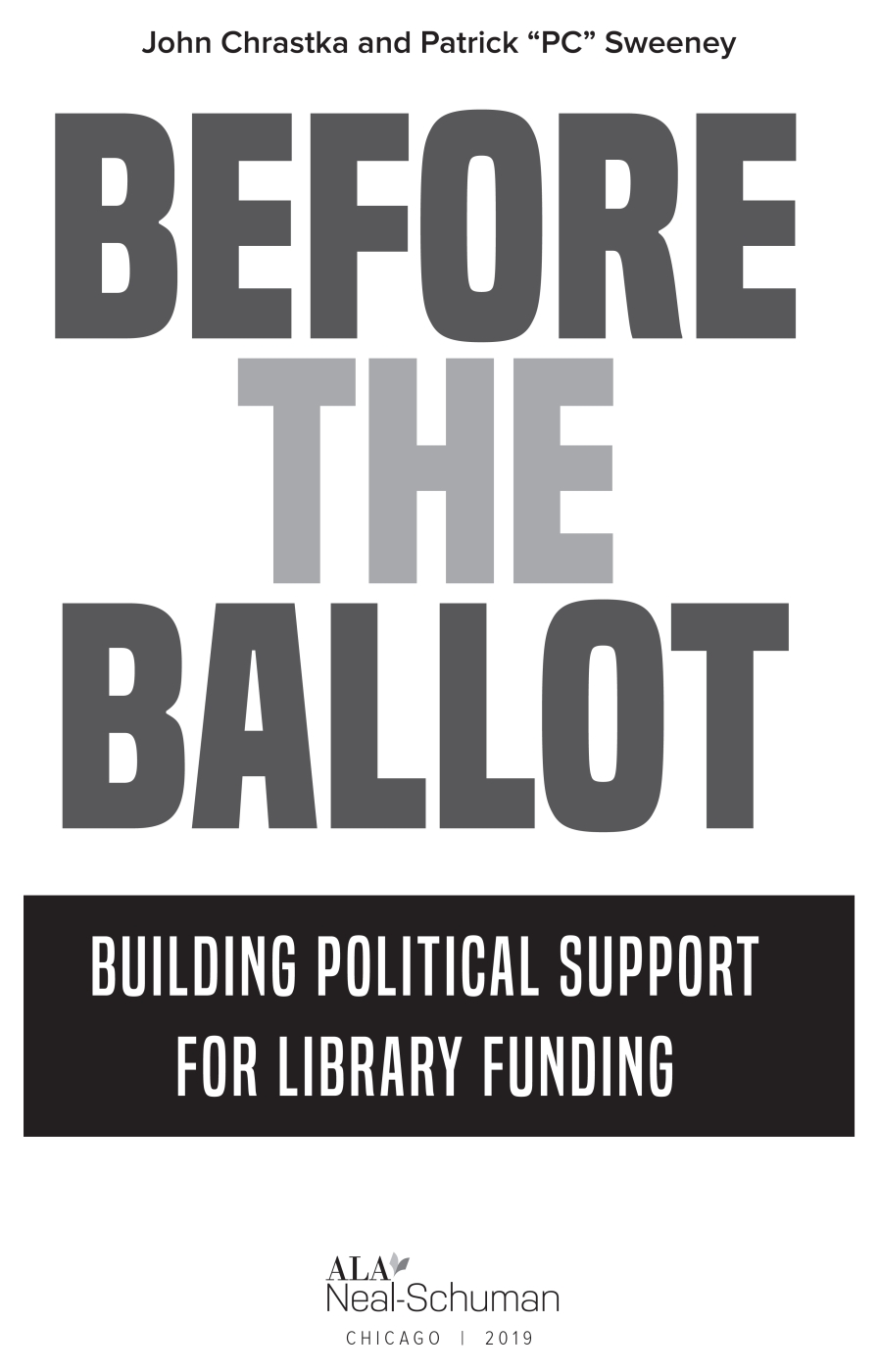
JOHN CHRASTKA is the founder and executive director of EveryLibrary, the first national political action committee for libraries, and is a longtime library trustee, supporter, and advocate. He is a former partner in AssociaDirect, a Chicago-based consultancy focused on supporting associations in their membership recruitment, conferencing, and governance activities. Chrastka is a former president and member of the Board of Trustees for the Berwyn (Illinois) Public Library (20062015), and he is a former president of the Reaching Across Illinois Libraries System (RAILS) multitype library system. Prior to his work at AssociaDirect, he was director for membership development at the American Library Association (ALA). He is also a member of the Illinois Library Association and the American Political Sciences Association. He has written for Library Journal and InfoToday, and contributed to several journals and books. Chrastka was named a 2014 Mover & Shaker by Library Journal, and he tweets at @mrchrastka.
PATRICK PC SWEENEY is an innovative advocate for libraries. A 2007 graduate of San Jose State Universitys School of Library and Information Sciences, he is the political director for EveryLibrary and the executive director of EveryLibrary California, a statewide initiative to support library funding propositions. Sweeney is active in the ALA, where he is an at-large member of its governing council, and he is also active in the California Library Association. His library blog is well-respected, and he is a sought-after speaker and presenter. He has written for Demco, Library Journal, InfoToday, and the Public Library Association. Sweeney was named a Library Journal Mover & Shaker in 2015.
2019 John Chrastka and Patrick PC Sweeney
Extensive effort has gone into ensuring the reliability of the information in this book; however, the publisher makes no warranty, express or implied, with respect to the material contained herein.
ISBNs
978-0-8389-1779-4 (paper)
978-0-8389-1808-1 (PDF)
978-0-8389-1807-4 (ePub)
978-0-8389-1806-7 (Kindle)
Library of Congress Cataloging-in-Publication Data
Names: Chrastka, John, author. | Sweeney, Patrick PC, author.
Title: Before the ballot : building political support for library funding / John Chrastka, Patrick PC Sweeney.
Description: Chicago : American Library Association, 2019. | Includes bibliographic references and index.
Identifiers: LCCN 2018041315 | ISBN 9780838917794 (print : alk. paper) | ISBN 9780838918074 (epub) | ISBN 9780838918081 (pdf) | ISBN 9780838918067 (kindle)
Subjects: LCSH: Library fund raisingPolitical aspectsUnited States. | Library financePolitical aspectsUnited States. | Libraries and communityPolitical aspectsUnited States.
Classification: LCC Z683.2.U6 C48 2019 | DDC 025.1/1dc23 LC record available at https://lccn.loc.gov/2018041315
Cover design by TJ Johnson. Image Birmingham, Shutterstock.
CONTENTS
T his book is written to help librarians and library staff understand and navigate the political nature of their work in the years leading up to a ballot measure or political initiative. Our first book, Winning Elections and Influencing Politicians for Library Funding (2017), was primarily written for library ballot committees and advocacy organizations. We have now written another book, because there is a distinct and legal difference between what a ballot committee or other independent organization can do and what librarians can do to influence local politics. Most importantly, the work that librarians can do to influence politics can span the years between elections, while the work done by ballot committees usually only spans the few months before Election Day.
While these books are written for different audiences, the reason why we wrote both of them for the same library leaders is to highlight the political nature of library funding. We want to teach libraries how to navigate local sources of library funding and find solutions to the problem of decreasing funds for libraries. This book and our previous one should help librarians understand how they can work every day to ensure that the local funding mechanism (taxes) continues uninterrupted. This discussion is important because almost all library funding is inherently politically motivated, and we are seeing a significant decline in the motivation and interest of politicians and voters to continue to fund libraries (or anything) through taxation. However, we believe that through the principles taught in this book and our previous one, librarians can learn to slow or even reverse this disturbing trend.
Local tax revenue is the single largest source of funding for public libraries in every state. But since 2008, the ratio of local revenue to state and federal aid has been changing. In 2008, it was reported that a little over 80 percent of library funding came at the local level from the will of the local politicians and the local voters. The other 18 percent was made up of state and federal aid, and the remaining 2 percent came from philanthropic sources (De Rosa and Johnson, From Awareness to Funding, 2008). However, over the next ten years we saw a significant decline in funding support from state and federal agencies. In fact, many states have reported as much as a 40 percent decline in state funding for libraries. As reported by the State Library Administrative Agencies Survey, only 9 states have seen an increase in state aid since 2004; the other 42 (including Washington, DC) saw decreasing revenues. Of these 42 states, 27 saw the decline occur primarily due to the Great Recession (20082010), and the remaining 15 have seen a decline of up to 42 percent of funding since 2004.
These significant declines in state funding for libraries mean that more funding must come from local sources. In contrast to 2008, what we are currently seeing in most of the libraries we work with is that local funding makes up more than 9095 percent of the public library funding model, and only 23 percent of the funding is coming from state and federal sources. While its easy to wring our hands over this drastically changing landscape, much of the methodology of building support for funding remains largely unchanged. Thats because no matter how the local funding model looks, the truth is that local, state, and federal funding are all political in nature and can be influenced using the same methods as any other political initiative.
Of course, this discussion excludes philanthropic funding for libraries. Philanthropic funding only comprises about 2 percent of total library funding. According to the Foundation Center, library funding from philanthropic sources totals approximately just $340 million a year, and it is trending downwards. Philanthropic sources of funding also largely exclude rural libraries, which make up the highest number of libraries in the country. Only about 6 percent of the total number of grants for libraries and only about 12 percent of all grant funding goes to supporting rural libraries. If libraries choose to rely on philanthropic sources of funding, or are forced to by our voters and legislators, there simply isnt enough funding available (especially for rural libraries), considering that the annual funding for public library operations in the United States totals only $11.5 billion.
Next page
